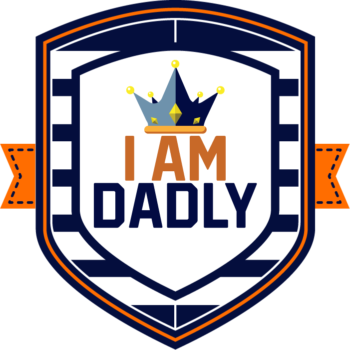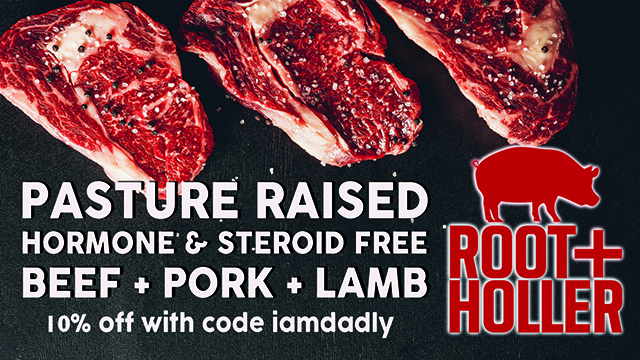
Here is today’s Game and what’s going on.
Here is what I discovered today in Chapter 5 of Stop Doing That Shit by Gary John Bishop. The title of this chapter is “The Throne of Thrown-ness.”
Let’s dive into today’s highlights:
- There are the things in your life that you didn’t choose, didn’t pick, but were thrown into, aptly called “thrown-ness.” Basically, they existed before you did, and you had to adopt them and adapt to them pretty damn quickly.
- No one gets to choose where or when they will be born. Nor on that fateful day had we chosen our parents or our race or our gender. There is a litany of things you had zero say in but your life is modeled around. All of that is part of your particular thrown-ness.
- That magic little sponge of innocence arrived with a slap and a scream and was thrown into the tide of humanity and the hypnotic trance of “making it.” You had no say in any of this, yet it doesn’t matter if you think it’s fair. It doesn’t matter if you like it, loathe it, resent it, or appreciate it. You’re here, and you’ll have to deal with it like everyone else before you and everyone after you. This is where the road to peace of mind begins. Acceptance. Acceptance doesn’t mean you agree or give up; it means you accept something for what it is and what it’s not.
- Acceptance is the gateway to real change. It’s also something you need to give some real thinking to. You need to deal with yourself and what you haven’t really accepted and what you’ve burdened yourself with by not accepting things as they actually are.
- Either way, you’re going to embrace all of it (every single, last drop) or you’re going to be a victim to it. There’s no in-between. Either you’ll own it or it will own you. Not all victims look like helpless souls sitting by the wayside of life and pleading for help. Many of them are successful and driven and would balk at the idea of even being called a victim.
- There’s another thing you were “thrown” into. Conversations. When I say “conversations,” it’s not just the general ones of society but also the ones specific to your family and your early environment, the ones handed down from generation to generation about every aspect of life you could care to imagine. A giant, meandering forest of opinions reaching back God knows how long into the past, and you’re so deep in it you can’t even see it. What were people talking about before and immediately after you were born?
- If, for instance, your parents didn’t have a lot of money (and most likely neither did their parents), you were born into their views and experiences of finances as a scarcity mind-set.
- On the one hand, that might have taught you the value of a dollar and to be thankful for what you have. There are plenty of people who break out of that conversational trap and produce great wealth, but it’s far more likely you’re struggling financially within the same kind of framework your parents were in. Their struggle became part of your conversation.
- You might be doing better, but you’re currently embedded within a group of unspoken financial rules and limits that you had no say in putting together. You have agreed to them, though. No one made you do that.
- Self-sabotage is often what shows up when someone starts to hover near financial breakthroughs, when they’re getting close to the point of realizing their dream. At this point they realize they’ll have to figure out a new, unrecognizable life. Somehow, by seemingly (to them) bad luck or coincidence, they stumble at the last minute and begin to undermine their progress and make the kinds of choices that undo all they were striving for. They return to living within that inherited range of what’s possible. The range of the certain.
- Human beings are much more engrossed with the task of getting to the goal than actually achieving it or, God forbid, facing the horror of having to permanently deal with life AFTER they’ve done the something they’d always wanted to do.
- As counterintuitive as it sounds, as a group we are seemingly drawn much more to the struggle than to the prize. That’s why, after you succeed, back into the struggle you go. At least that also might start to explain why some people, after accomplishing great things, the fulfillment of long-held dreams and fantasies, follow a path of self-destruction in one way or another to return themselves to their own personal struggle.
- Those conversations you were thrown into covered every subject of life and, unbeknownst to you, became an important part of what ultimately set the tone for your life of self-sabotage.
- Relationships, love, friendships, success, what’s good, what’s bad, politics, sex, race, faith, you name it, and all fully in existence before you even got here. Some of it was healthy, some of it unhealthy. Some of it was appropriate, some of it wildly inappropriate. Whether your family talked about these subjects openly and in detail or hardly ever or in very vague terms, they all played their part in shaping who you are to one degree or another. As you’re probably now realizing, that kind of experience has had a huge impact on you. The impact continues and is still happening every minute of every day and in every area of your life. You’re not unique in this regard. It’s the same for every human being on the face of the planet and the ones yet to come.
- You’re running around on autopilot almost all of your day, even with those “mindfulness” practices you’ve been taking on! It seems like you are in charge, you feel like you’re a conscious being, but the reality is, you’re not. You’re in a haze of automatic thoughts and behaviors masquerading as awareness. That’s why when you make a bold commitment to change, you somehow end up right back in that same old routine before you know it. Every moment of every day, you are being driven to act by your own subconscious thoughts. Caught up in a relentless wave of your innermost self.
- We are conscious beings addicted to the patterns and cycles of our subconscious and automatic reactions to life.
- And while you may have a sliver of control over what you consciously think about, you don’t actively think about and choose what’s in your subconscious. It’s a gloomy, shifting mass of everything you’ve experienced in your life.
- You have subconscious influences from your first crush, how often your parents hugged you (or didn’t), your goldfish Pete and the image of his little fishy body being flushed down the toilet, the dentist visits, broken bones, your friendships, “experiments” with your body, your failures, shame, successes, and pretty much everything you can imagine. All of it’s there in the recesses of your mind, whether it’s a tiny blip or a major milestone. Yep, it’s all sitting there, deep in the ocean of your most distant thoughts, percolating and pushing you this way and that, all too familiar and ultimately limiting.
- The reality is, whether you find yourself in these examples or not, you have no idea what specifically constitutes your subconscious makeup or how powerful it really has been in shaping you. You do, however, deal with its impact every single moment of every single day. It’s called your life. The vast majority of what’s in your subconscious is ignored, peppered with selective incidents, conversations, and selections of what your cognitive self sees as relative in any moment of time. Jung saw the subconscious as the key to unlocking our potential.
- Before you start throwing anyone under the bus, remember that everyone in your life was thrown into the fire, just as you were, and has lived inside the trap of their inherited BS, just as you have done. I know, I know, when you were growing up, your parents were supposed to have all the answers, all the wisdom, supposed to have been perfect human beings like your friend’s parents or the ones you saw on TV, right? Still think your parents should have known better? Yeah, maybe they should have. But also, right now, so should you, and how has that worked out? We’re all human beings, trying to make it, often failing, sometimes disastrously so.
- Listen to me carefully. The single most important thing you can do for your life is to release anyone (including yourself!) from blame for how your life has turned out. This includes parents, friends, neighbors, everyone. If that irritates you or enrages you, if you find yourself turning to your go-to argument or all-too-familiar upset, take some stock here. You are arguing to keep the life you have. You’re making a case for sabotaging yourself!
- Here’s the deal—YOUR REAL LIFE is lived in moments, and whether you like it or not, you’re always in this moment.
The question is, what are you doing with this moment, right fucking now—what are you using it for?
- In this very moment, you’re doing either what you usually do or something else entirely. That’s always the case until you die. Moment by moment.
- Perhaps it’s time for you to get interested in that something else. You cannot free yourself with conditions. Either it’s free or it’s not.
- You have to be willing to own your life for how it is, no blame, no anger, no resentment. It went the way it did, you turned out the way you did, and now it’s game on and into the future we go.
- Take a moment here and look back at your life. In particular, look at your background and upbringing. Now, what are all the ways you have used that thrown-ness to justify yourself.
- Dig into this a little. Take your time to uncover all of the ways in which you look to the stuff you had no say in to explain the life you now have.
- You were thrown in; you had no choice in it. Now, own it!
- Think of this like outsourcing. Your life has been about explaining and justifying and excusing yourself, in effect giving away your power to outside influences. But now, it’s about bringing all that stuff back in-house, about getting your life together and recognizing yourself as the one and only true source of change.
- It’s you, and it always has been.
Those gems lead us to today’s Dadly Daily Declaration:
It’s time to stop blaming your parents, or anyone else for that matter, for where you’ve now landed in life. That explanation has run its course. It’s tired and worn and out of juice. Even if you were thrown into the worst circumstances, it’s your choice now to turn your life around, make it better, learn and grow and break free of where you came from. You have choice from this moment on.
Ultimately, figuring out who is to blame solves nothing. All it does is explain and keep you stuck. That’s your choice here. It really is black and white.
Choose. What are you going to fight for? The past or the future? Your self-sabotaging BS or a long-awaited freedom?




